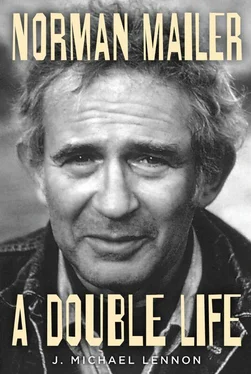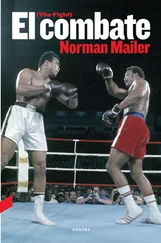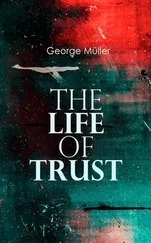But the largest drawback of fame was that it cut him off from real experience, as he called it, the kind he’d had in the army, experience that was thrust on you, as opposed to the kind one sought. “I used to feel that I didn’t know anything because I got rich too soon,” he said. “I used to feel sorry for myself.” But after some years of demeaning his fame, he started to enjoy it. It was “an acquired appetite.” He agreed with the Marquis de Sade that “there is no pleasure greater than that obtained from a conquered repugnance.” When he reached that point he wanted more and more of it, recognizing that being famous at an early age was a genuine, if unusual, experience. If he was unable to enjoy normal life, he now had “a sense of how… not tenuous, not fragile… how delicate, perhaps, is identity.” Success had brought on an identity crisis. After that, he said, “It was as if there was somebody named Norman Mailer, but to meet him people had to meet me first.” Then, as his fame waxed and waned over the next decade, he saw that “I could now write about the identity of people who had a certain amount of power.” One of Mailer’s most important subjects is power, and how it is gained, lost, regained, or dwindled away, and the conflicted, intricate psyches of those who exercise it.
His literary career had a significant foreground — in Brooklyn, Harvard, and combat in the Philippines — but it began officially, one might say, on that hot day in Nice. Before they opened the mail and saw the magnitude of the novel’s reception, Barbara said, “was the last time Norman could feel he was himself and not Norman Mailer.” He said that he “felt kind of blue” after reading the mail in Nice. When they returned to Paris a few days later, he told his sister, “I think the book may be better than I am.” He had turned twenty-five only a few months earlier.
ONE
Long Branch and Brooklyn
Norman Mailer knew little about his grandparents’ lives in Lithuania, then part of Russia. The Mailers and the Schneiders lived in three towns, not more than sixty miles apart, in central and northeastern Lithuania: Panevezys, Anyksciai, and Utena. Unknown to each other in Russia, the two families emigrated at the end of the nineteenth century to escape economic hardship or persecution, or both, the Mailers settling in Johannesburg, South Africa, and the Schneiders in New Jersey.
Mailer’s maternal grandfather, Hyman (Chaim) Jehuda Schneider, was a precocious child who studied the Torah and Talmud from a very early age. Mailer’s mother, Fan, said that he was “sent at the age of seven to the yeshiva in Wolozin [Volozhin], Russia, which was comparable to Columbia [University] in the U.S.” Commonly referred to as “the Mother of Yeshivas,” the Volozhin Yeshiva was the home of the Misnagdim , the opponents of Hasidism, the rambunctious, anti-formalist movement that developed among European Jews in the latter part of the eighteenth century. “My father,” Fan wrote, “was a staunch follower of the Misnagdim. He felt the Hasidim were not so learned; they depended too much on the rabbi and his blessings.” There is more than a slight irony in the fact that her son would become fascinated by the mysticism of the Hasidim. In the early 1960s, he wrote six columns for Commentary , reflections on folk stories collected by Martin Buber that centered on the Hasidim’s dialectic, which, Mailer said, “placed madness next to practicality, illumination side by side with duty, and arrogance in bed with humility.” Early and late, Mailer gravitated to incompatibles.
Born in 1859, Schneider was a rabbi by sixteen and, at about the same age, married Ida Kamrass. They had six children, in order: Joseph, Rebecca (Beck), Jennie, a son who died at childbirth, Rose, and the youngest, Fanny or Fan. At the end of the century, the Jews in the Pale of Settlement (comprised of the bulk of Poland, Ukraine, Lithuania, Latvia, and Belarus) were being driven abroad by double taxation and forced enlistments in the czar’s army. Parlous conditions from 1881 to 1914 forced over two million to emigrate. Sometime in early 1891, Schneider left for the United States with his half-sister, Lena, his half-brother, Morris, and his wife’s youngest sister, Minnie. Ida, pregnant with Fan, stayed behind. The Schneiders were separated for three years. Ida, her sixty-two-year-old mother, Leah Sacks, and the five children arrived in New York in October 1894, sailing from Rotterdam on the SS Veendam .
When Hyman Schneider arrived in 1891, he was advised to set up a soda water and newspaper stand on the Lower East Side. He and Lena opened the stand at four A.M. and worked shifts until late at night. Irish gangs, operating with impunity, dominated the area and took what they wanted. Sixty years later, Mailer had an apartment not far from where his grandfather had once toiled. After six months, Schneider left the city and became a peddler in rural New Jersey. He also taught Hebrew to Jewish families in Belmar before finally settling in the resort town of Long Branch, where, according to Fan, he was “induced” by the small local Jewish community to start a kosher grocery store.
In The Naked and the Dead , Mailer drew on his earliest memories for a description of the store run by Joey Goldstein’s grandfather, a learned Jew who quotes the medieval Jewish poet and scholar Yehuda Halevi:
Inside there is a narrow marble counter and an aisle about two feet wide for the customers who stand on the eroded oil cloth. In the summer it is sticky, and the pitch comes off on one’s shoes. On the counter are two glass jars with metal covers and a bent ladling spoon containing essence of cherry, essence of orange. (Coca-Cola is not yet in vogue.) Beside them is a tan moist cube of halvah on a block of wood. The flies are sluggish, and one has to prod them before they fly away.
The Schneider store catered to the Jewish population, which burgeoned each summer with the arrival of middle-class visitors and a few wealthy New Yorkers. Preoccupied by his studies, Rabbi Schneider played a relatively small role in the store; the women and older girls did most of the work with the two younger girls helping after school. Only Rose and Fan were able to graduate from high school.
Along with recent arrivals from the Pale, itinerant rabbis, cantors, and others were put up for days at a time at their home, often staying until enough money could be collected for them to move on to the next town. Hyman was their informal counselor, an independent scholar who was glad to learn and teach. Over tea and sweets, he regaled the household with stories from the Talmud or read accounts of the life of his hero, Baruch Spinoza, a freethinking Portuguese Jew who was excommunicated by the Orthodox Jewish community of Amsterdam. Rabbi Schneider’s intellectual ability is an article of faith in the Mailer family. Fan’s husband, Barney, said the source of his son’s talent was “his maternal grandfather. A Talmudic scholar.” Fan added, “three of his grandsons went to Harvard.” Marjorie “Osie” Radin, the eldest of Mailer’s American cousins, who was nineteen when the rabbi died, said, “That’s where all the brains and talent came from.” In a memoir, Mailer’s sister, Barbara, answers the question “Who was Grandpa?”
Certainly, in one view, the archetype of the timid Jew, the one who whispers in front of the firing squad, “Don’t make waves.” But also the saintly, kindly man, the revered intellectual, brave enough to come to a foreign land and work at menial entrepreneurship, too afraid of violence to stay in New York (a gang of thugs once overturned his peddler’s cart), but too proud to be a rabbi who takes orders from others, orthodox in his rituals, but on the edge of apostasy in thought.
Читать дальше












